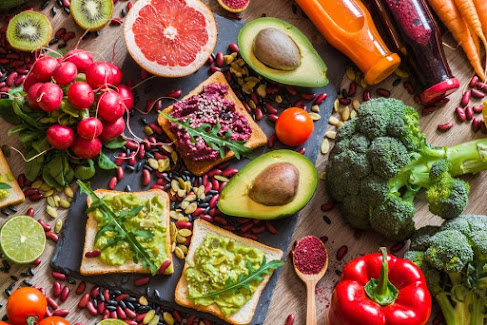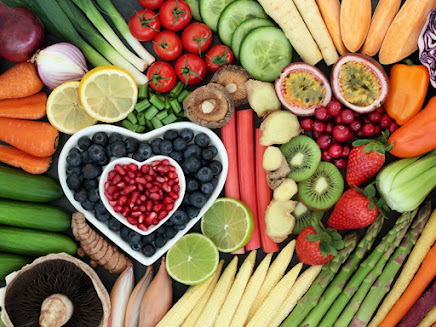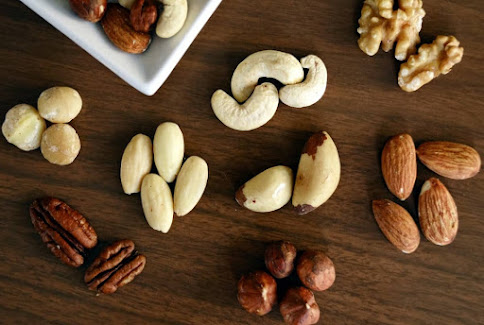A vegan diet originally includes
organic fruit and vegetable and zero animal products. People on this food do not have animal meat, fish, poultry, including eggs instead they take the milk and all dairy produce. It will not incorporate additives such as sugar. Nutritionists say that a decent vegan diet can satisfy all the nutritional requirements of a human being, whether male or female, child, adolescent, or the elderly. People go on this diet for several purposes, topmost among these being religious, ethical, cultural, and health goals. Overall, a vegan diet is much better to eat than a diet burdened with animal proteins.

Vegan food can cover grains, nuts, legumes, vegetables,
organic fruits and vegetables. One should have higher servings of grains, legumes,
fresh fruits and vegetables, or any other food loaded with proteins and vegetables. Smaller portions of organic fruits and vegetables are absolute. One can get all the nutrients that are needed from plants, including proteins. Some of the healthiest protein sources are black beans, lentils, garbanzo beans, pinto beans, navy beans, kidney beans, pumpkin seeds, hemp seeds, almonds, almond butter, pistachios, and peanut butter.
Low-calorie herbs to use on a vegan diet cover cucumbers, tomatoes, celery, carrots, green beans, and bell peppers.
Fruits incorporate cherries, strawberries, raspberries, blueberries, cranberries, black currants, and grapes. The varieties of nuts to eat include almonds, peanuts, macadamia nuts, hazelnuts, pecans, pistachios, and walnuts.
The best fats to use include olive oil, almond oil, walnuts, pecans, marine algae DHA, and avocados. Fat is very essential for providing the body with energy. Consuming sufficient amounts will keep the body going for much longer than carbohydrates. These fats pose no risk of fat accumulation in the body because they are all unsaturated. Fats should provide between 20 and 40% of calories in a vegan diet. It is essential to include small amounts of saturated fats such as coconut oil/milk as well for optimal health.
There are numerous benefits to eating a vegan diet. Feeding
fresh fruit and vegetable reduces the risk of ischemic stroke. Eating citrus fruits, green leafy vegetables, and cruciferous lower occurrence of stroke by 27%, death from stroke by 42%, and decreases cardiovascular illness by 27%. Overall, it decreases fatality by up to 15%. Eating fruits,
vegetables, nuts, and whole grains also reduces the risk of getting diabetes. Other advantages include diminished cholesterol, blood sugar levels, heart problems, and cancer. A vegan diet discharges cancer-fighting phytochemicals such as isoflavones, ellagic acids, glutamates, phenolic acids, carotenoids, flavonoids, and sulfide compounds among others.

A vegan diet is the most certain way to keep your weight in the limit. You will continue to be trim and in optimal health. Higher energy levels, clear smooth skin, a general feeling of well being, good memory, and longer life are some of the other assertive effects. If you find the taste of pure vegetables and grains too bland, season your foods with herbs such as garlic, cayenne, onions, ginger, rosemary, turmeric, oregano, basil, chives, and sage. There is something to go with all meals.




